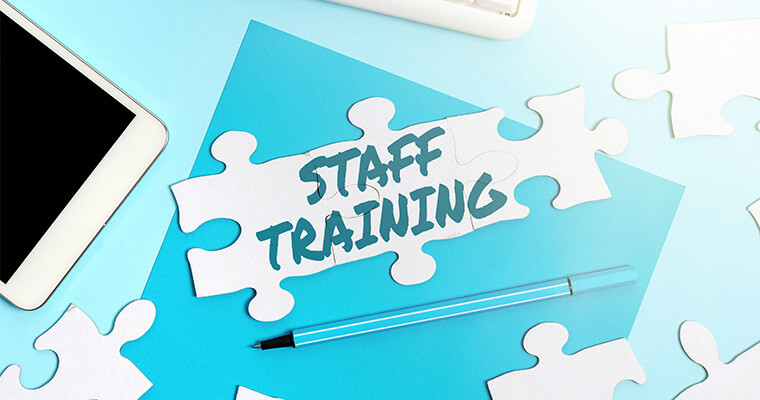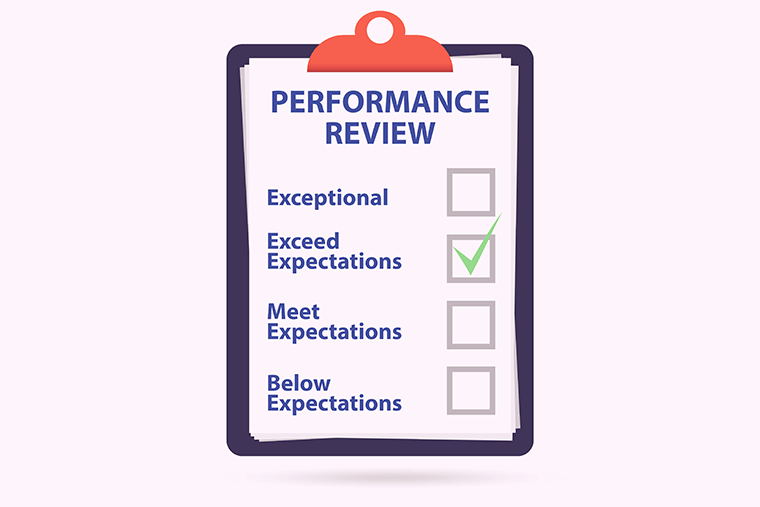4 Steps for Training and Developing Your Dental Staff

Hiring is a challenge for dental practices across the country as the shortage of hygienists and assistants continues. Especially in times like these, when you find a talented team member, you want to keep them around for the long haul. It starts with implementing strong training and development programs, which include key responsibilities for dental office managers.
With the right systems in place, you can help the staff feel supported and become their best selves, which can cultivate a positive culture and successful practice.
How can you make the most of your staff training and development? Here are a few tips to get started.
Put a training structure in place
To build a productive and successful team capable of delivering high-quality patient care, you need to lay the groundwork. Training programs can’t be haphazardly thrown together whenever the practice hires a new employee. Rather, dental offices need an organized, established system for bringing new hires up to speed and monitoring their progress.
At a basic level, dental practices should have employee forms ready to go when new team members start. They should also have thorough employee handbooks that outline day-to-day office protocols, procedures, and step-by-step policies. While a new hire won’t be able to memorize the ins and outs of the handbook right away, it can help outline expectations and get them up to speed more quickly. Plus, it provides a reference for any questions or issues that arise.
Don’t rely on the handbook to do all the work, however. Hands-on training is often the best way for new staff members to learn about the office’s facilities, computer software, infection control protocols, patient etiquette, and more. Allowing new employees to shadow other staff members can help them gain practical experience and knowledge, as well as simply learn how your office operates. Your training structure may also include online courses to provide education on topics such as HIPAA or OSHA regulations. Once you have the training plan in place, map out a schedule for new employees, setting goals and benchmarks along the way to track progress.
You may not build the perfect training structure right away, and that’s Okay — you’ll learn what works best for your office over time. Encourage your new hires to ask questions and seek feedback about the training process to help you make any necessary adjustments.
Provide ongoing support
Training and development should continue for your dental staff long after their start dates. Supporting the dental team in enhancing their skills and knowledge will allow them to perform at the highest levels for the practice and your patients. Having a flexible training program, such as the Dental Assisting Curriculum Framework…Click to learn more in a new window… from the DALE Foundation can help you establish an ongoing training program and help your practice be adaptable.

The flexible online framework includes educational outlines for 10 weeks, 6 months, and 2 years, depending on the dental assistant’s level of experience. The curriculum also offers recommended online courses, textbooks, competency checklists, and links to readings, videos, and activity resources. The Dental Assisting Curriculum Framework can help prepare dental assistants for DANB exams and certifications, too.
Invest in professional development
Dentistry is a broad area of study, and there’s always something new to learn, including new technologies, approaches to patient care, infection control protocols, or state regulations. Continuing education courses and professional certification allow the dental staff to advance their knowledge and take on more responsibilities in your practice.
Whether it’s helping your staff pursue professional certification or continuing education courses, supporting their ongoing development is mutually beneficial. Employees will become more confident and proficient in their jobs, patients will receive better and safer care, the office will run more efficiently, and your practice can improve its reputation in the community. Additionally, investing in professional development helps the team feel valued because it shows you want to see them succeed and reach their future goals. When employees feel appreciated and supported, it’s also easier to retain them and maintain a positive office culture.
Give regular feedback and performance reviews
Make a point to provide feedback to the dental staff on a regular basis, as this is the best way to help employees grow. You can give informal feedback at any time, such as when a team member does an exceptional job calming down an anxious patient or seamlessly adjusts to an unexpected change in the schedule. You should also set up more formal reviews on a regular cadence (e.g., every six months) to assess each employee’s performance and set goals.

Ideally, nothing in the performance review should come as a surprise to the employee if you’ve provided regular feedback throughout the year. But reviews are great times to have an in-depth, two-way conversation about a staff member’s overall performance, including their competence in the requirements of the position, their communication with teammates and patients, and their attitude. If necessary, reviews are the time for establishing a corrective action plan for employees who aren’t meeting expectations. Performance reviews are also ideal for reviewing long-term goals and setting new ones.
If you want to take your practice’s staff training and development to the next level, try out the DALE Foundation’s new Dental Assisting Curriculum Framework…Click to learn more in a new window…. The framework can supplement your in-office training by providing a structured program to help your dental assistants progress through the material outside of office hours and build their knowledge and skills. Additionally, the HR Fundamentals in the Dental Office…Click to learn more in a new window… course can help you establish best practices for hiring, training, and reviewing employees.
About the Author

Matt Wilkes is the Content Marketing Strategist for the Dental Assisting National Board and The DALE Foundation.






